Measuring the Incrementality of Podcast Ads: A 6-Month Case Study
By applying causal methods with robustness checks, Stella identified incremental lift that attribution systems missed.
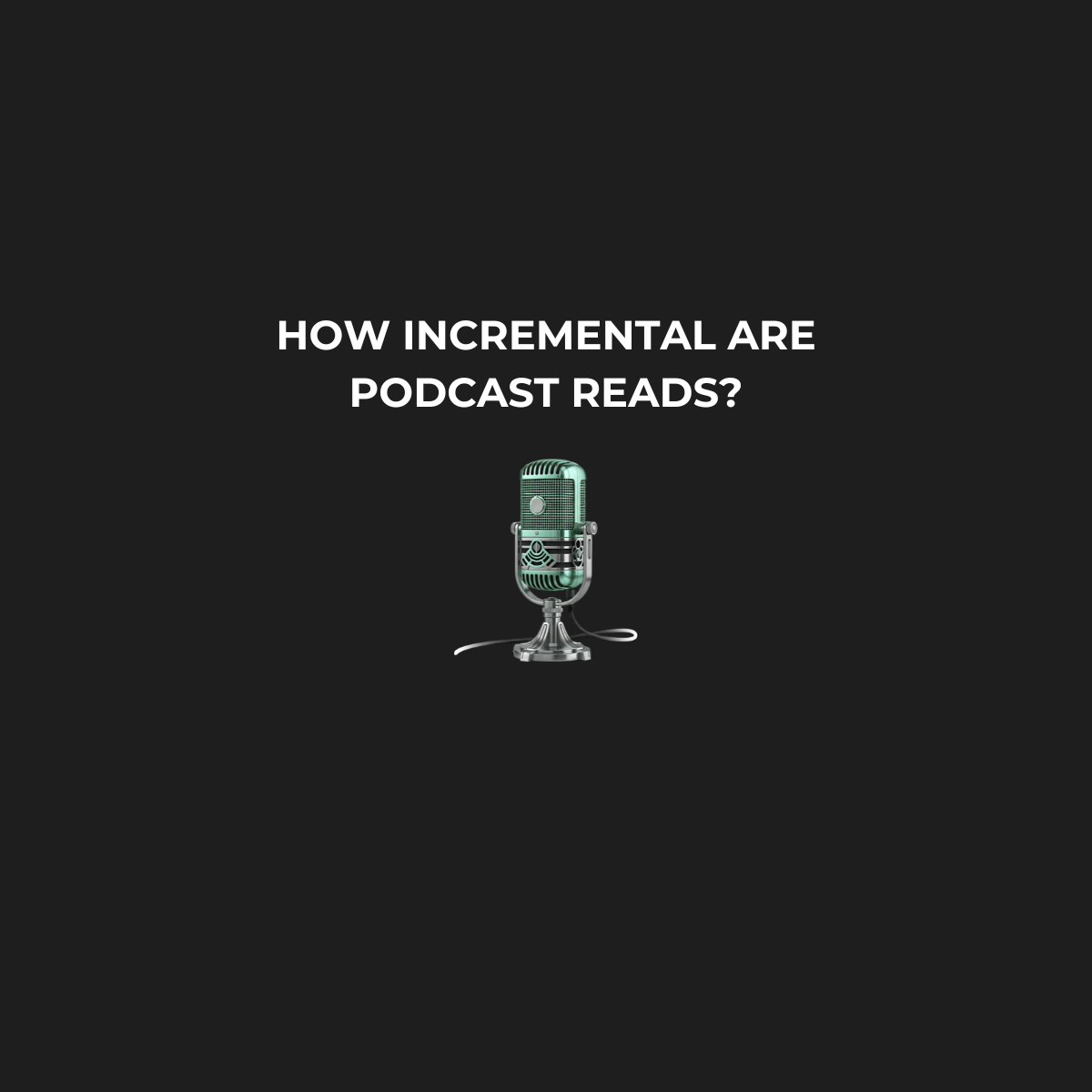
Introduction
Podcasts are one of the most difficult channels in performance marketing to measure. Attribution systems undervalue them, while brand marketers often overstate their halo effect. The truth is that podcasts influence demand in ways that are not captured by direct clicks or promo codes, but proving it requires advanced methods.
Our client, an ecommerce brand with an average order value between $150 and $300 and about $3M in monthly revenue, runs most of their advertising on Meta and Google. In 2024 and 2025, they expanded into podcast sponsorships on high-profile shows such as Meidas Touch, Some More News, Steve-O's Wild Ride, and The H3 Podcast. Traditional promo-code attribution suggested podcasts returned only 1.0 to 1.5 ROAS. We suspected the true incremental effect was higher.
Stella set out to measure it.
Why Podcasts Are Difficult to Measure
- Podcasts deliver nationwide, so geo holdouts are not possible.
- Listeners rarely convert immediately, which means promo codes only capture a fraction of the impact.
- Multiple podcasts often air on the same day, making it impossible to isolate individual shows.
Given these realities, we focused on the overall incremental effect of podcasts within the media mix rather than single-campaign attribution.
Methodology
We analyzed three test windows (February, March, and April 2025) using Stella’s incrementality engine.
Study Design
- Outcome variables: Daily revenue and orders.
- Pre-period: 120 days of training data for stable forecasts.
- Confounders included: Meta, Google, TikTok, seasonality, promotions, and organic demand signals.
- Treatment definition: Daily podcast spend (continuous) and a binary field for podcast air days.
- Models used: An ensemble of Bayesian structural time series, temporal regression, and synthetic controls. This reduced the risk of overfitting to a single method.
- Validation:
- Pre-period fit measured by Mean Absolute Percentage Error (MAPE).
- Posterior predictive checks for forecast accuracy.
- Placebo tests, where podcast spend was randomly shifted in time, confirmed the signal was not an artifact. None of the placebo runs produced a false lift of comparable size.
- Statistical significance tested at 90%. In marketing science, many applied studies use 90% thresholds because business data is noisier than lab-controlled data.
- Pre-period fit measured by Mean Absolute Percentage Error (MAPE).
Results
Aggregated Performance
Across the three months, podcasts delivered strong incremental ROAS of 2.6 to 2.9 in February and March. April showed a smaller but still positive lift of 1.2. All results were validated with multiple model families and placebo checks, ensuring the signals were genuine.
Suggested Chart: Bar chart showing iROAS by month with confidence interval whiskers.
January 2025 (Invalid)
- Incremental Revenue: $109,290
- Spend: $12,980
- iROAS: 8.42
- iROAS Range: [7.42, 9.42]
- Incremental Orders: 814
- MAPE: 15.75 percent
Interpretation: The brand had a large promotion in January, along with other sponsorships. We have invalidated these results but it can be used as directional insights that investment in podcasts was highly incremental.
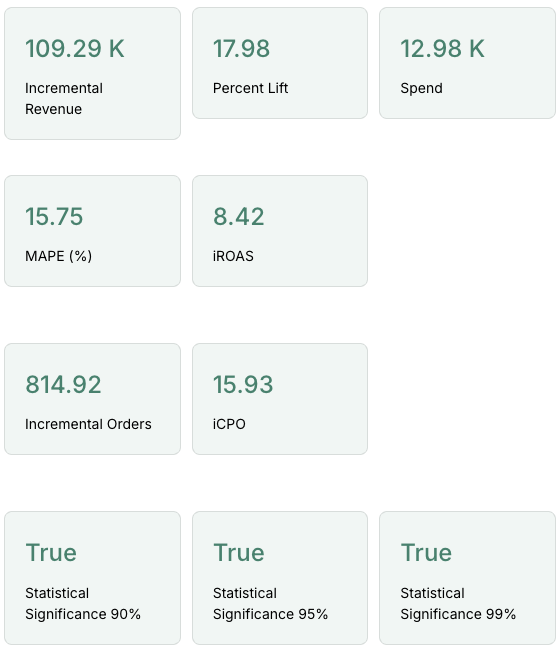
February 2025
- Incremental Revenue: $78,420
- Spend: $27,160
- iROAS: 2.89
- iROAS Range: [2.12, 3.66]
- Incremental Orders: 600
- MAPE: 12.1 percent
Interpretation: February showed meaningful lift with wider confidence intervals due to more variability in the data.
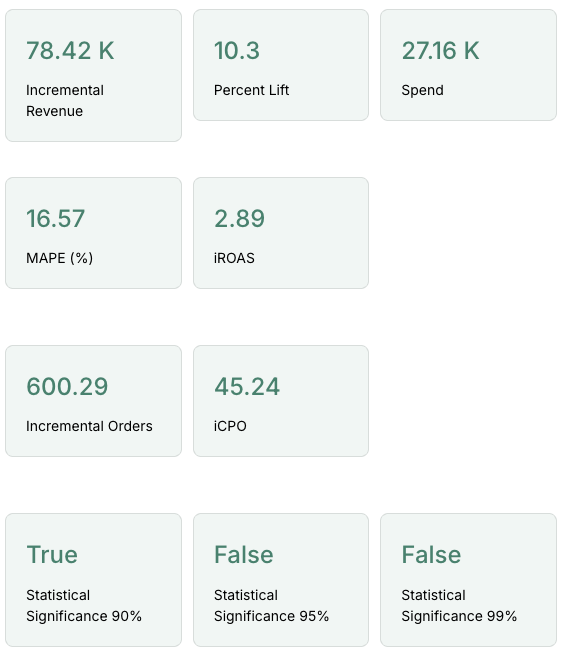
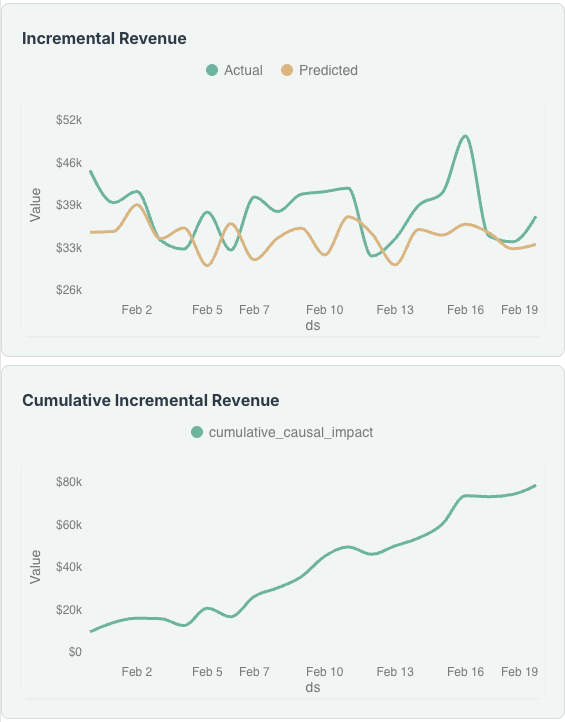
March 2025
- Incremental Revenue: $71,680
- Spend: $27,110
- iROAS: 2.64
- iROAS Range: [1.90, 3.38]
- Incremental Orders: 543
- MAPE: 8.85 percent
Interpretation: March provided the cleanest signal, with tight model fit, narrow ranges, and consistent directionality across model families.

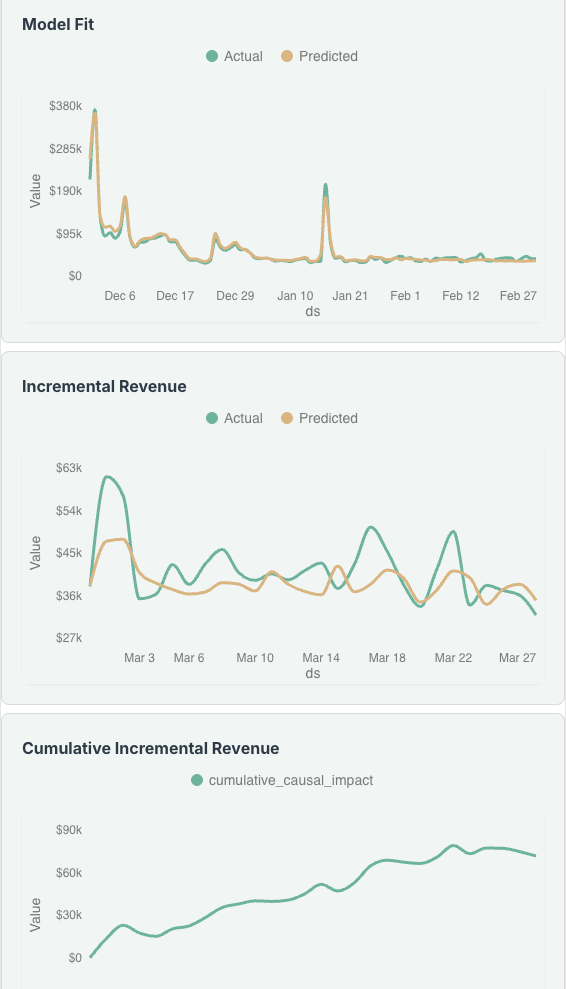
April 2025
- Incremental Revenue: $25,790
- Spend: $21,250
- iROAS: 1.21
- iROAS Range: [1.02, 1.40]
- Incremental Orders: 195
- MAPE: 6.38 percent
Interpretation: April showed incremental lift, but at a smaller magnitude than earlier months. Competing promotions and overlapping campaigns likely reduced effect size. Importantly, placebo tests confirmed that the signal was real. This variability highlights why ongoing measurement matters. Without causal reads, one soft month could be misinterpreted as proof that podcasts do not work, when in reality the performance was context-driven.
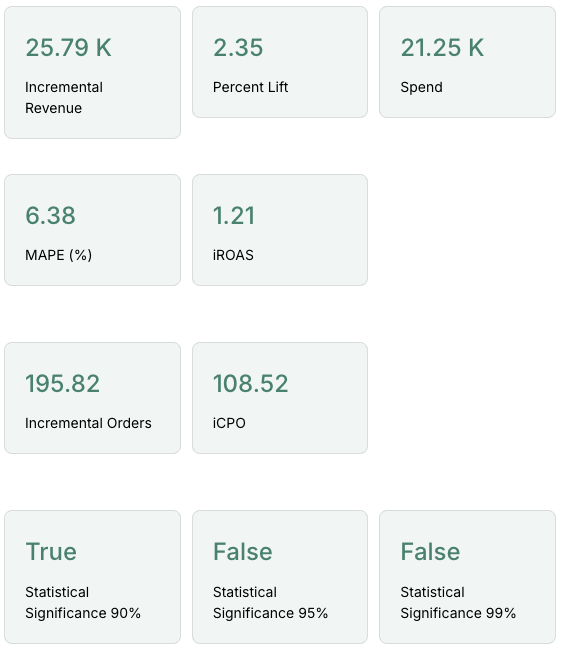
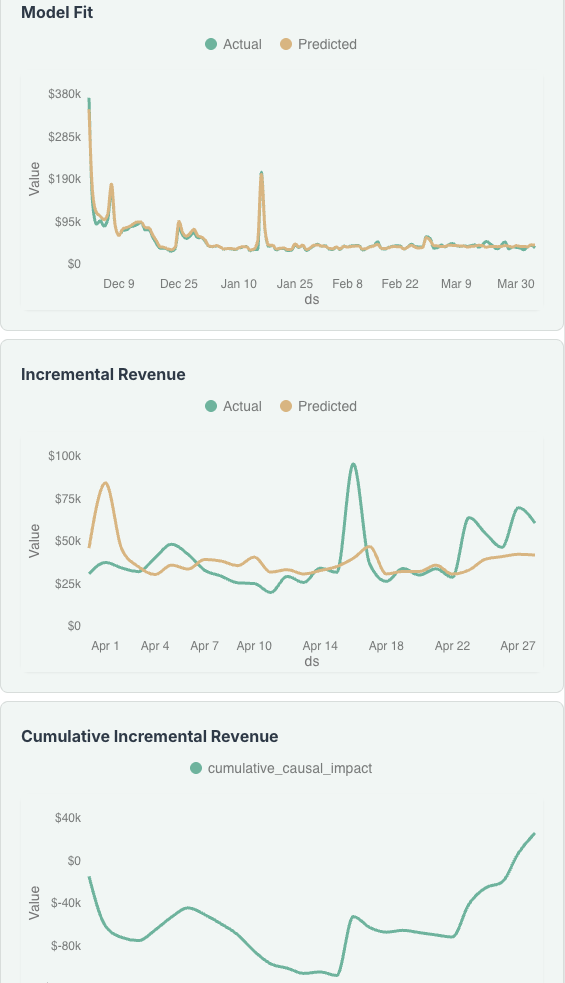
Key Learnings
- Podcasts consistently drove incremental revenue not captured by promo codes.
- Performance varied by month, underscoring the importance of continuous measurement and context-aware interpretation.
- Even at 90 percent confidence, results were directionally reliable when validated with multiple models and placebo checks.
- Podcasts proved most effective as a complement to Meta and Google, amplifying awareness and long-term conversion lift.
Future Testing
For even higher precision, the next step is a structured holdout test:
- Pause podcasts for three months, then run a heavy sponsorship month.
- Or, after a sustained run of podcast spend, pause for one month to measure the effect of going dark.
These designs would create stronger contrast and narrower confidence intervals.
Conclusion
Podcast ads are more complex to measure than Meta or Google, but they are not unmeasurable. By applying causal methods with robustness checks, Stella identified incremental lift that attribution systems missed.
Across multiple months, podcasts showed strong incremental returns of 2.6 to 2.9 in February and March. Even in April, where lift was smaller, the models confirmed that podcasts still added value.
For ecommerce brands with high average order values and repeat purchase potential, podcasts should be treated not as a brand-only tactic, but as a measurable and incremental growth driver. With the right methodology, their contribution can be proven with confidence.

.png)
.png)
.png)
.png)